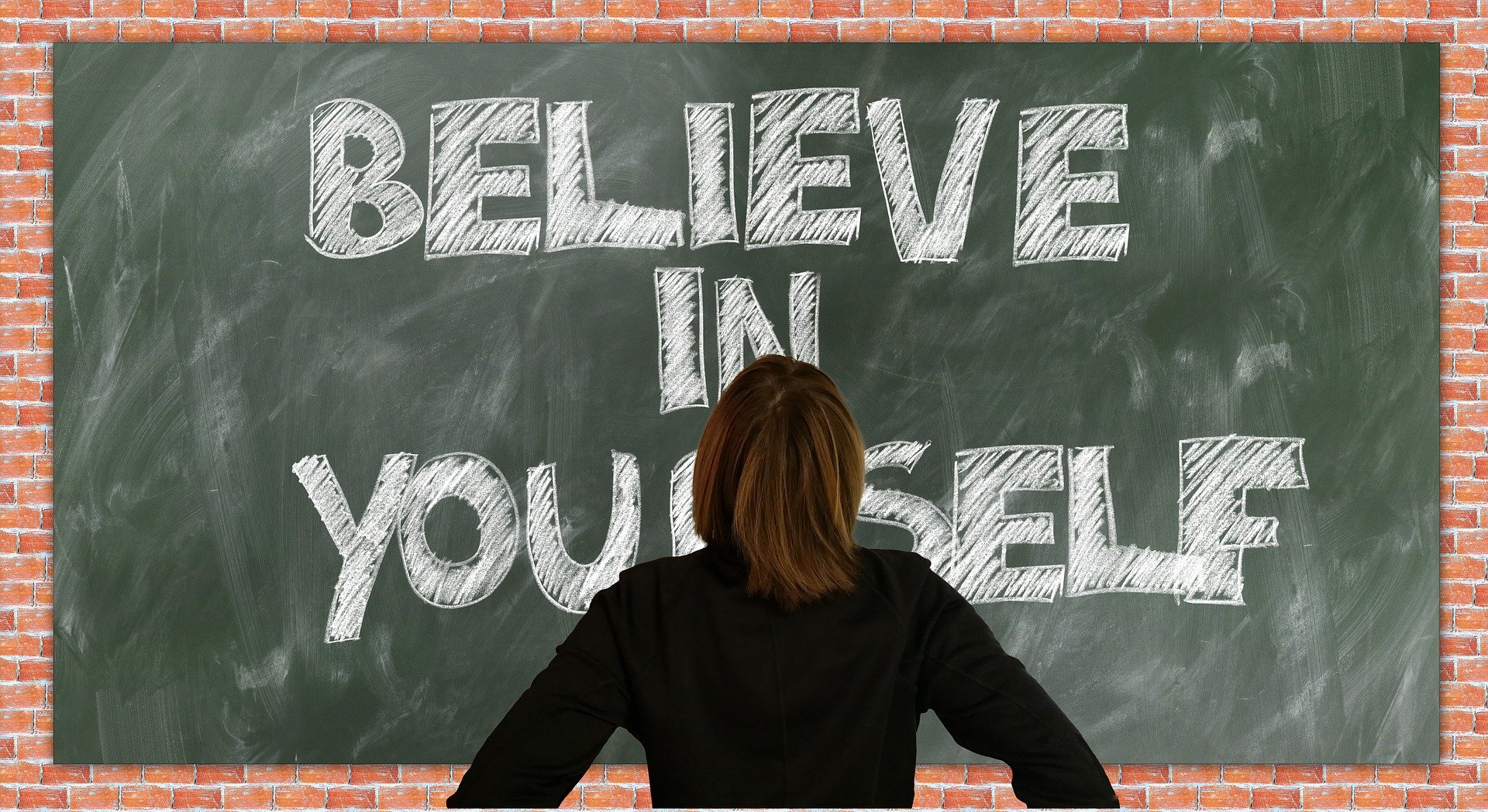Having confidence in yourself and feeling good about yourself is of utmost importance. This skill is crucial in all stages of life, from when we are old, surrounded by our family, and when we are working.
Without it, we will struggle to find happiness and reach our full potential. It is also very easy to observe when somebody is not feeling good about himself or herself.
Confidence is attractive, so it can have a real impact on your whole life. If you do not feel good about yourself or if your confidence isn’t as strong as you’d like, this may be discouraging to think about.
However, it would be a mistake to think that this is a permanent state of affairs.
With a little practice, it is possible to build your confidence and feel a whole lot better about who you are, and thankfully, we are here to show you how.
What is Self-Esteem and Confidence?
Self-esteem is the opinion or view of one person about himself. In contrast, confidence is the belief in the ability to make the right choice, to do it in the best way, and to handle whatever comes of it.
Confidence must be based on competence. A person can be riddled with doubts and fear and still act with self-confidence! Self-confidence is what he can manage in terms of his own capabilities, knowledge, physical well-being, emotional well-being, etc.
Self-esteem and confidence are two different things, and they don’t necessarily go hand in hand!
Tips for Increasing Self-Esteem and Confidence In 2026
But how can anyone else believe in you if you don’t believe in yourself?
Self-doubt, fear, and self-limitation all contribute to a lack of confidence in oneself. The only approach to overcome these issues is to modify your mindset and increase your self-esteem. Here are some helpful mental tricks for increasing your self-assurance:
Overcome Your Self-Limiting Beliefs in Order to Increase Your Self-Esteem

Kids are usually upbeat and self-assured. As kids get older, though, self-doubt and low self-esteem creep in. The imposition of other people’s views and expectations — mainly parents and teachers — is part of the cause for this transformation. Before they reach adulthood, roughly 20% of teenagers experience depression as a result of self-esteem concerns.
Pushing through these self-limiting ideas is the first step toward developing confidence. To discover your boundaries, put yourself in difficult situations. Once you’ve become acclimated to such situations, you’ll notice that your limitations are self-imposed and your potential is limitless.
Accept that your memories aren’t always correct to boost your confidence.
The way our brains keep information is influenced by our values, beliefs, and self-perceptions. Memories are skewed as a result of this selective mechanism. As a result, not everything you recall is an accurate reflection of reality. For example, if you asked various persons who observed the same event what they remembered, their answers would very certainly differ.
Recognize that your memory isn’t always true, and revisit self-limiting recollections to acquire a fresh perspective. It might be a success lie you tell yourself or a faulty notion about how others perceive you.
Improve Your Self-Image by Practicing Positive Self-Talk

On average, we utter up to 1000 words to ourselves every minute. Though it may appear strange at first, talking to oneself has several advantages. It aids with memory enhancement, stress management, self-respect, and good self-esteem. However, these advantages are contingent on how you talk to yourself. Speaking favorably to oneself can help you strengthen your self-perception, which can affect your neurobiological reactions. Consider issues as obstacles to be conquered.
Positive Mindset and Self-Confidence Can Help You Overcome Negative Bias
We all have a built-in negative bias that protects us against harm. It can, however, prevent you from trying new things that aren’t dangerous to you. Such prejudice might have a negative impact on your self-assurance. When faced with adversity, such as a terrible day at work, always search for the positive aspects. Remember that while pleasant things fade rapidly, negative things tend to remain around for a longer period. These strategies can help you overcome negativity and boost your confidence:
Come up with at least five positive thoughts to counteract each negative one.
Allow about 20 seconds for each good idea to sink in before moving on to the next.
Recognize both your positive and negative emotions.
Even though it’s simpler to ignore or repress your unpleasant feelings than to address them, don’t do so.
Recognize the bad emotion for what it is, and then move on. Internalizing a bad idea or feeling for too long just gives it more influence over you.
To improve self-confidence, work on self-doubt.

Low self-esteem causes self-doubt and a victim mentality, which makes you feel as if your life is at the mercy of everyone but yourself. Self-doubt is a typical stumbling block to career and personal success. Perhaps you’re frightened to apply for a promotion because you don’t believe you’re qualified, or you’re hesitant to attend an event because you don’t think you’ll fit in.
Except for yourself, no one is stopping you from excelling in everything you do. Assess the areas where you have doubts about yourself and work to break down those barriers. If you’re apprehensive about an interview, for example, simply brush up on suitable body language and etiquette, and you’ll create a great first impression.
Conquer Your Fears to Increase Your Self-Belief
Fear stems from a lack of control over something. You become afraid when you don’t feel in control. Fear melts away when you have a sense of control over something.
Fear is fueled by emotions rather than rational reasoning most of the time. It is not possible to conquer it by denial or avoidance; instead, you must approach it more closely. Bring your scariest fear to mind and ponder it for a while.
Take it one step further and consider the worst-case situation that may occur. Finally, you’ll discover that it’s not as horrible as it appears, and you’ll be well on your way to conquering your phobias.
Be more curious in order to gain self-assurance.
Curiosity is a necessary quality for everybody who aspires to be successful and self-assured. Curiosity implies that you are aware of your surroundings, eager to learn, and open to new experiences.
In both their professional and personal lives, an inquisitive person can grow and develop throughout their lives. So, whenever feasible, ask questions and keep your mind busy. You will not only discover new options, but you will also gain confidence.
Building self-esteem and confidence is a journey, not a destination that can be reached in a single step. Start improving your self-esteem now with these strategies, and you’ll be on your way to achieving your objectives in no time.
Note- All Image credits to pixabay.com
Also, Take a Look at:
